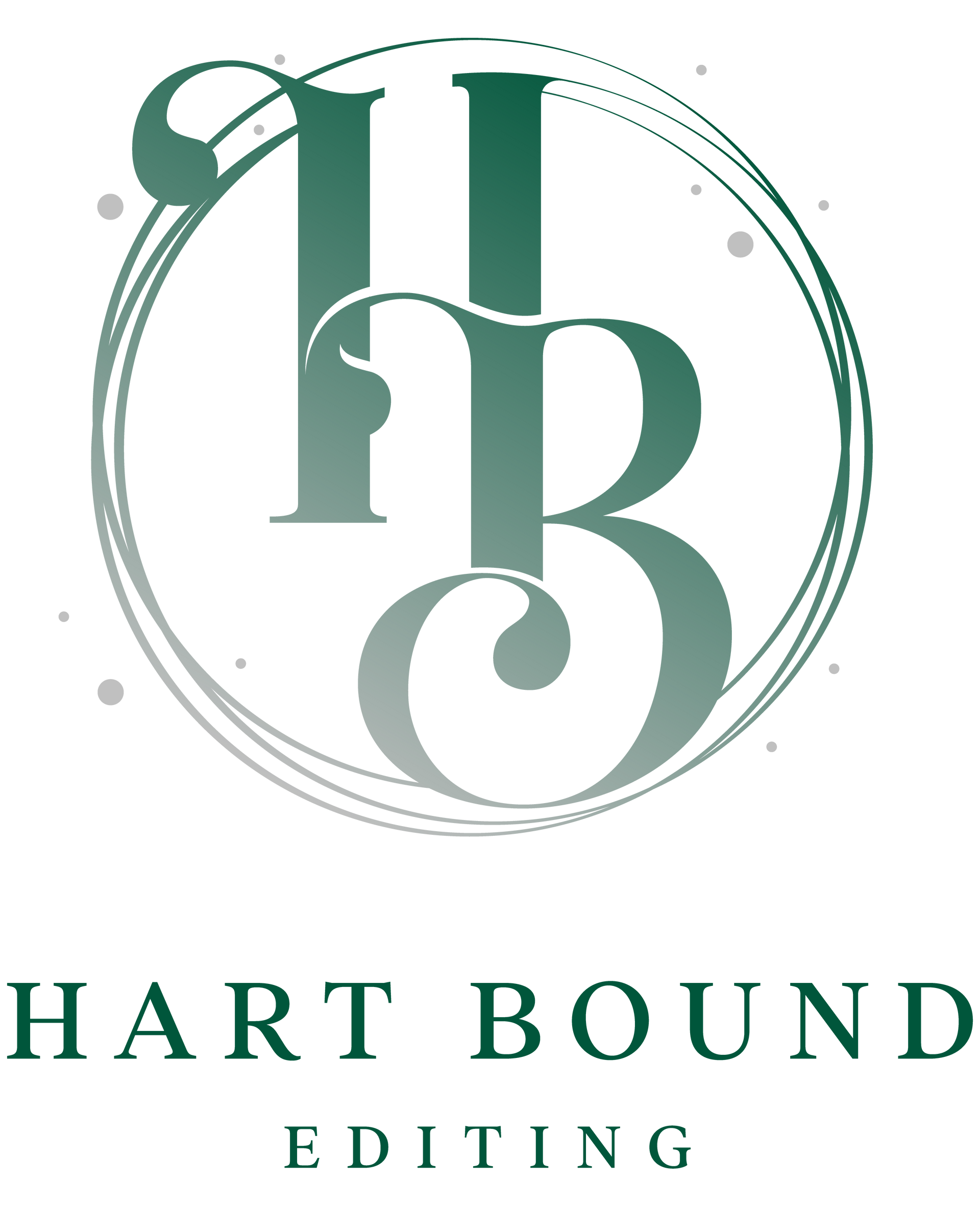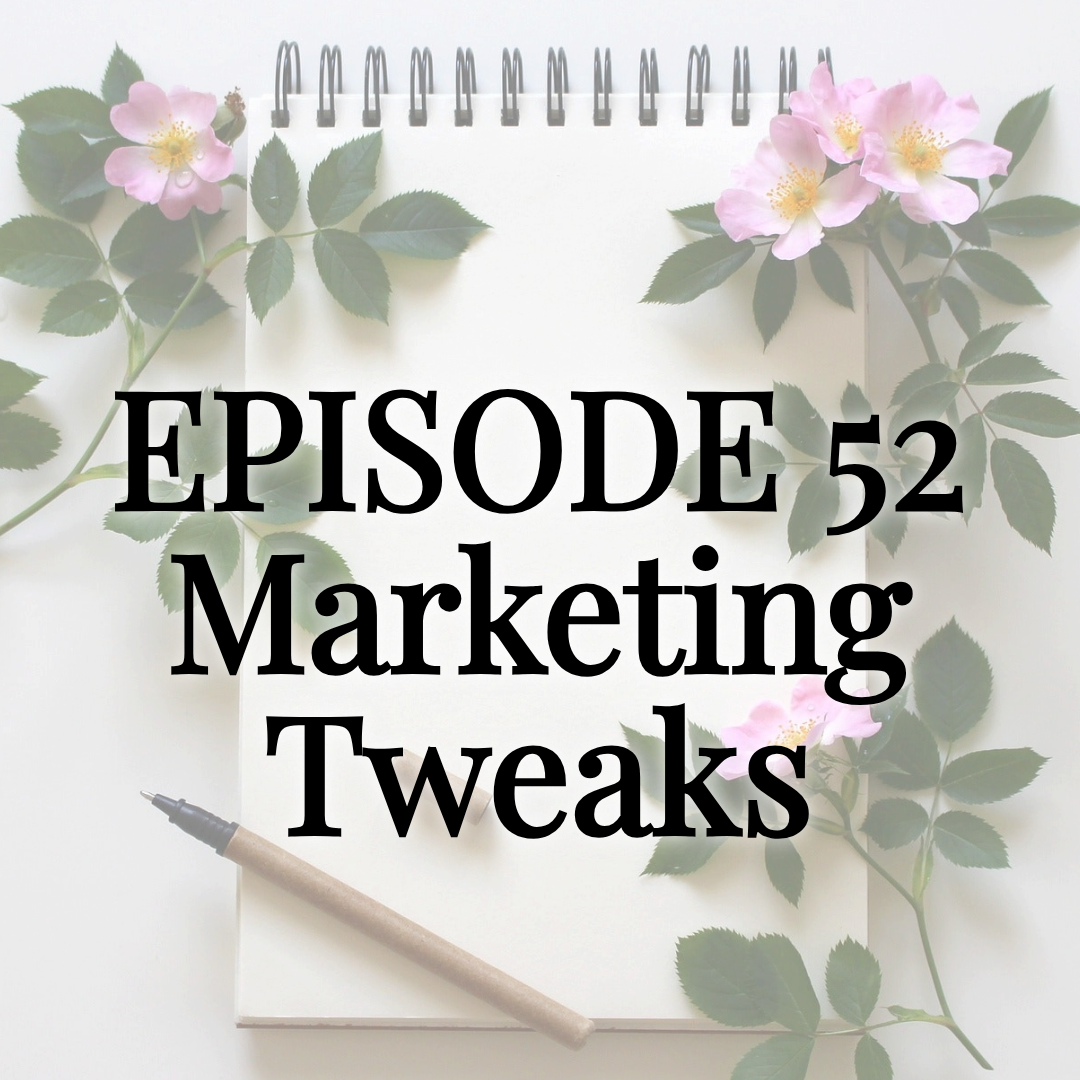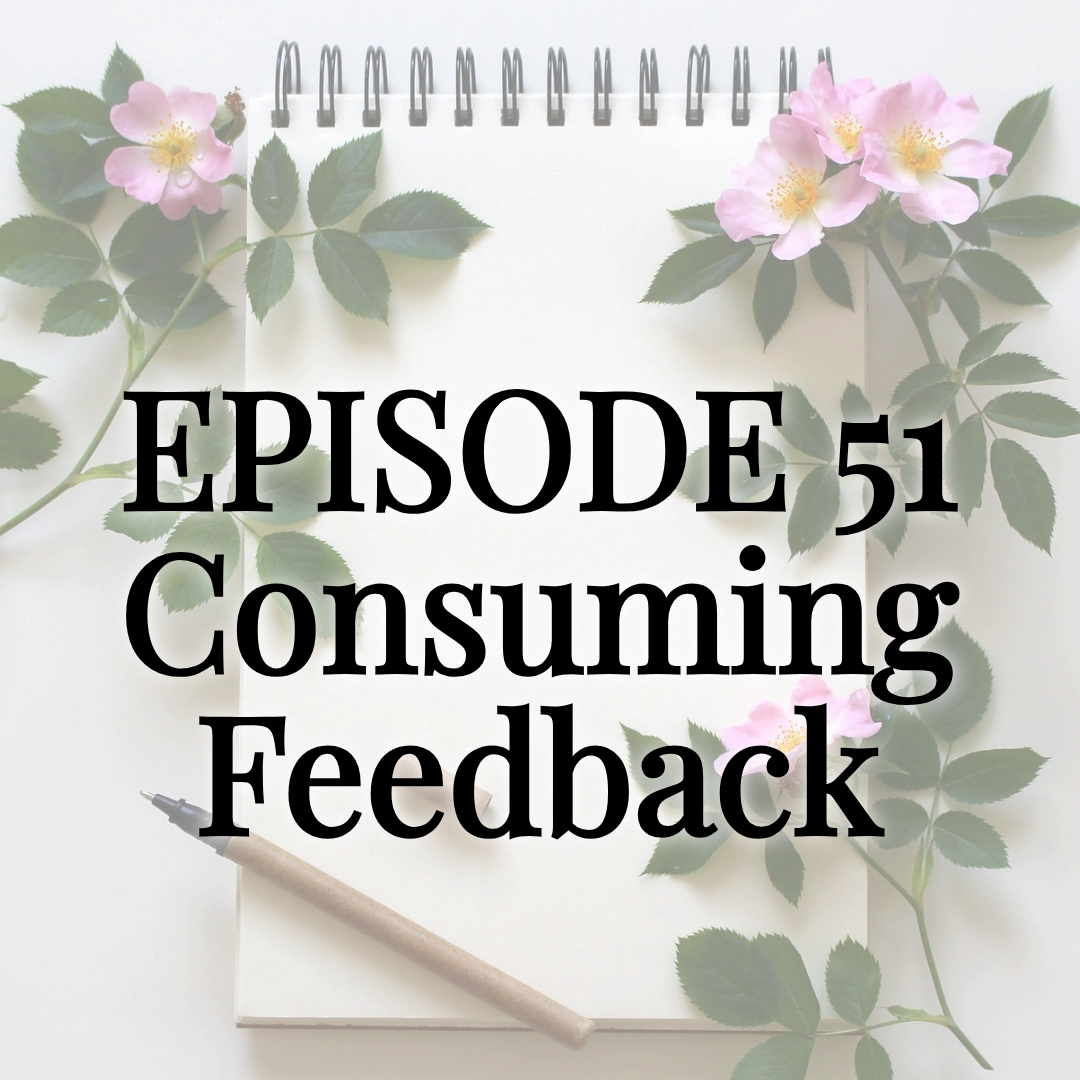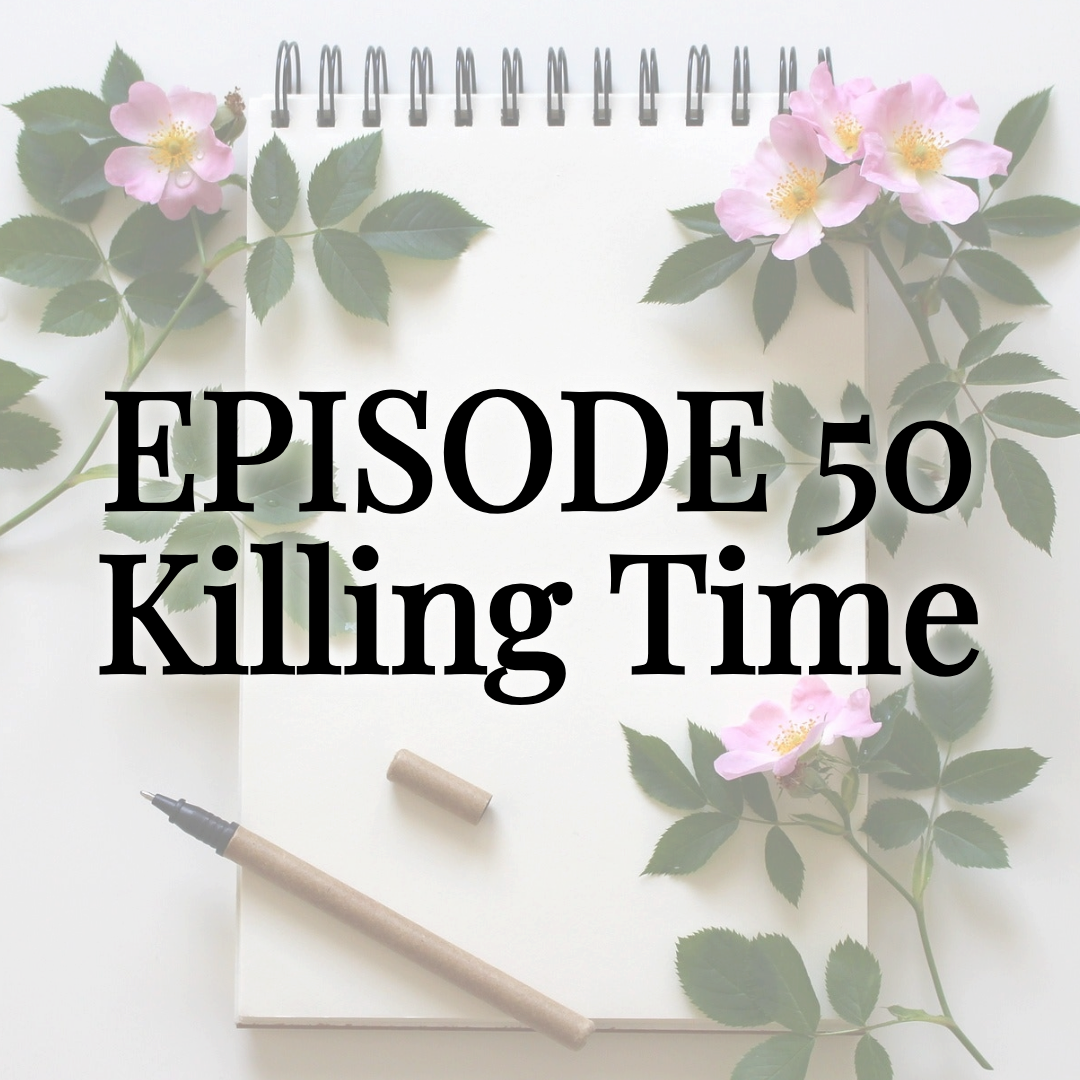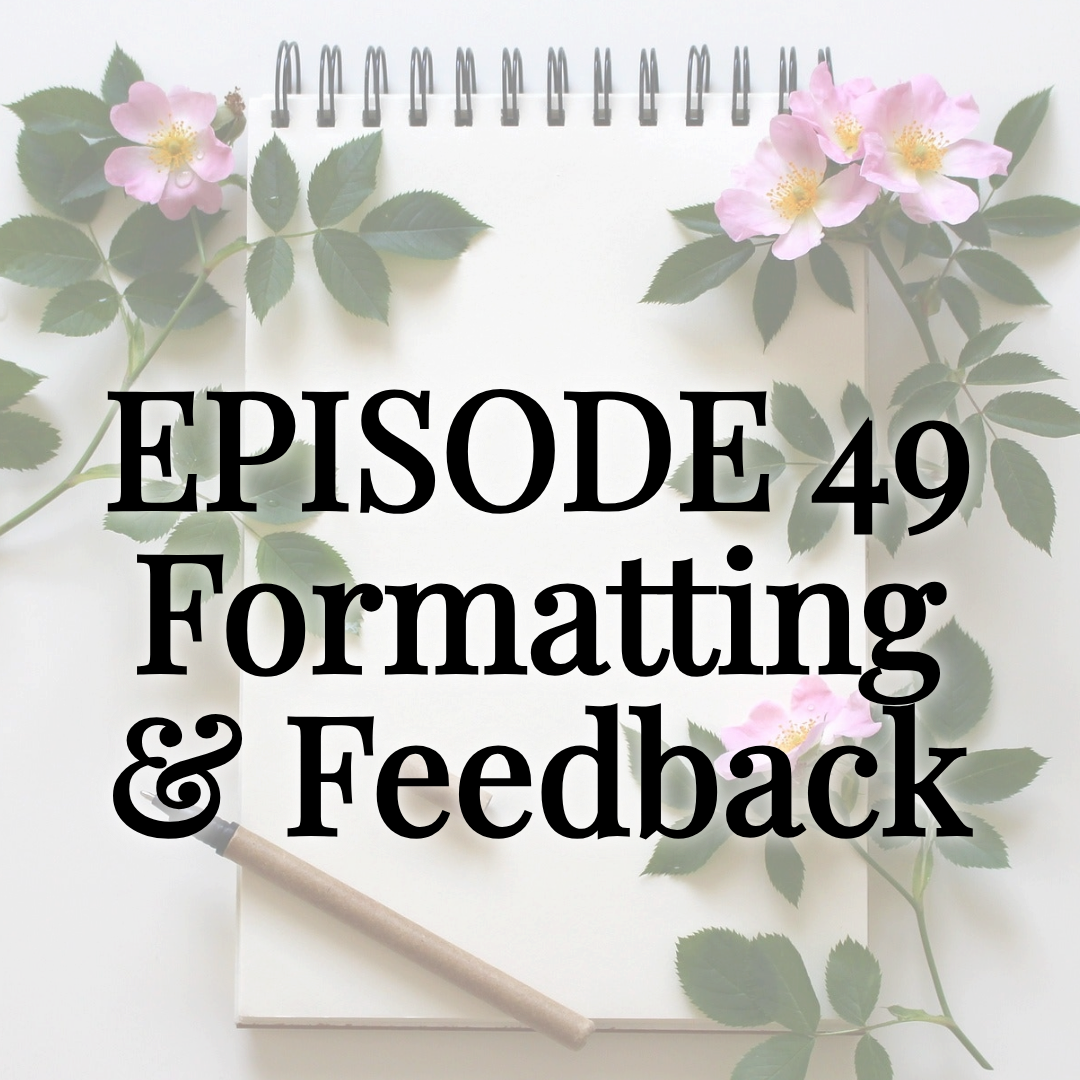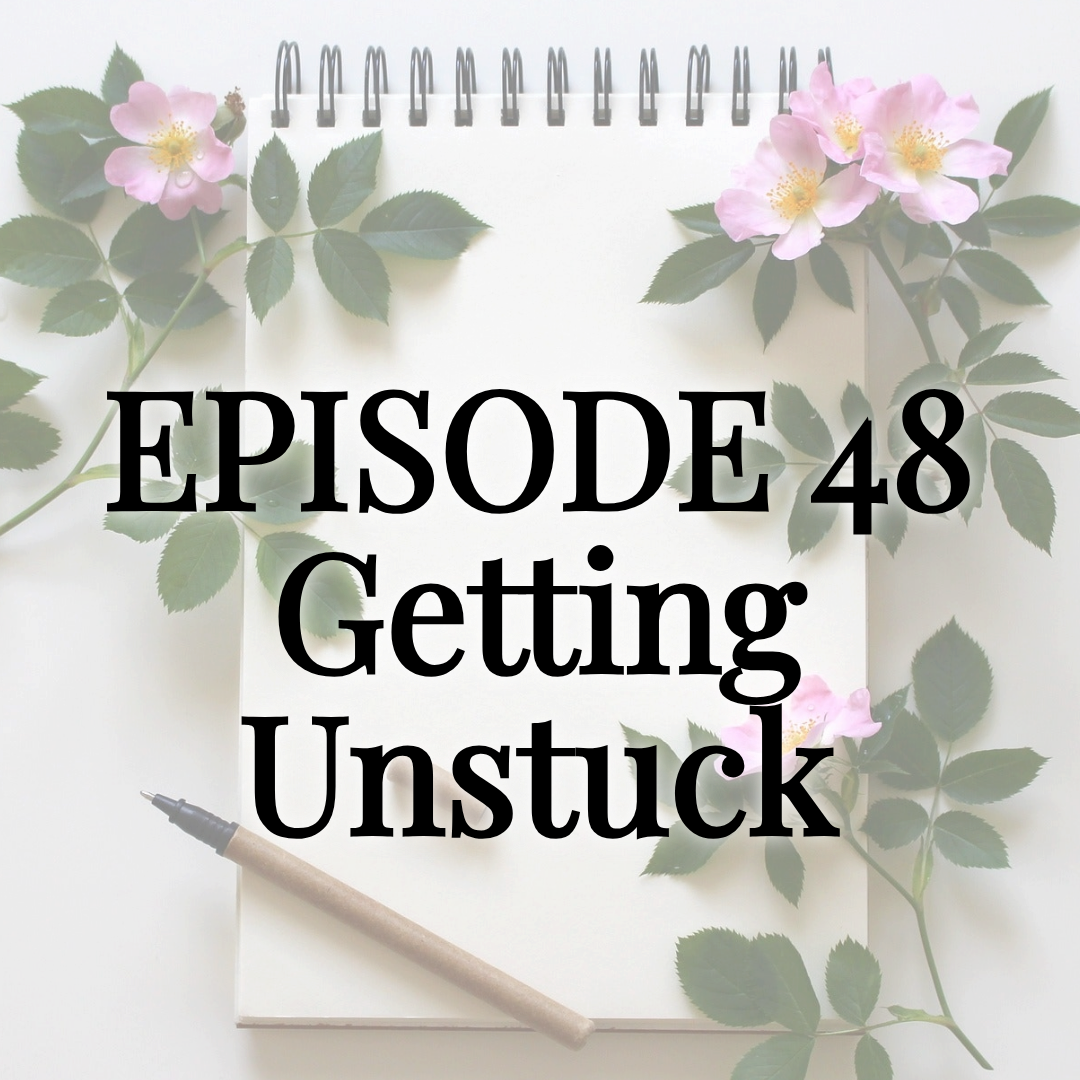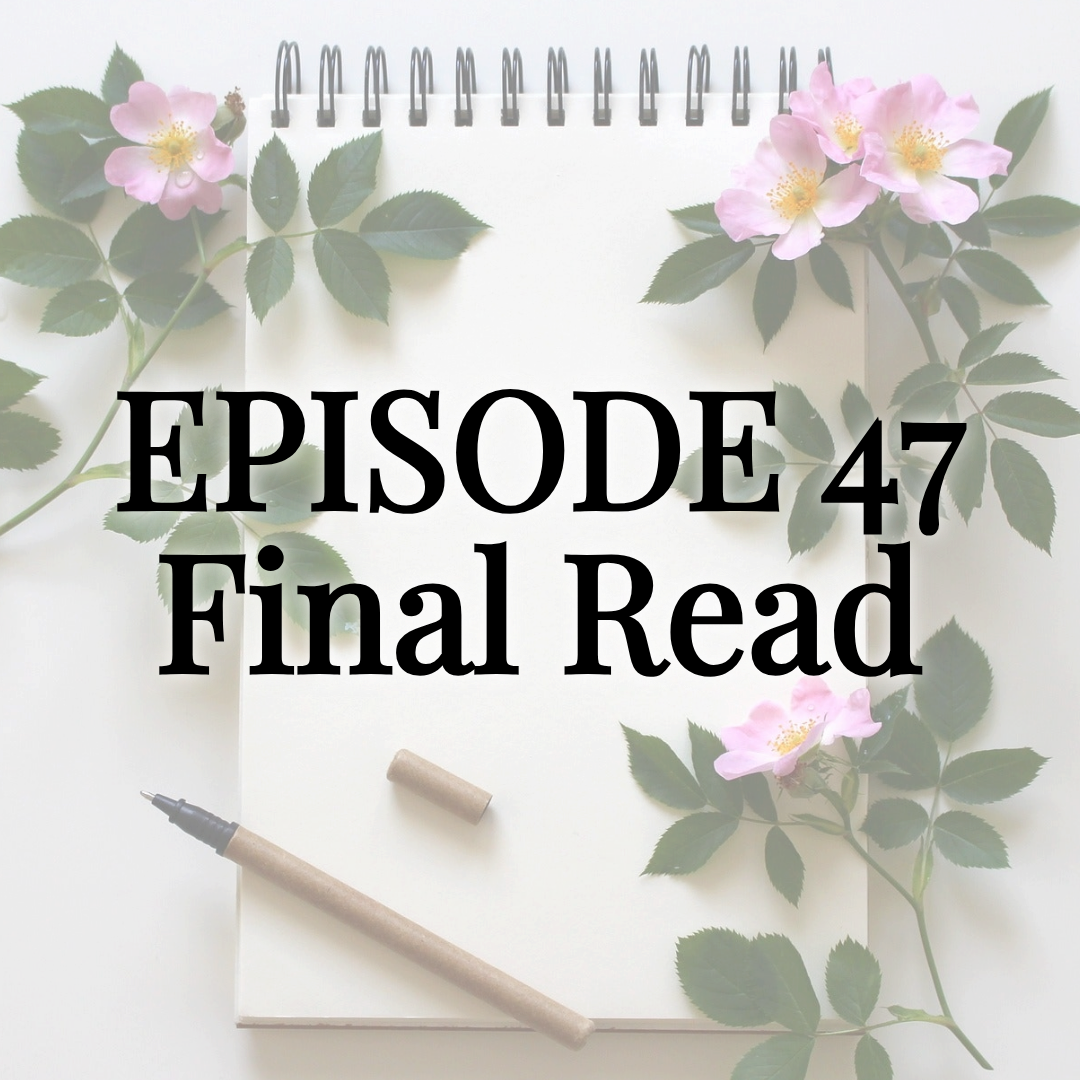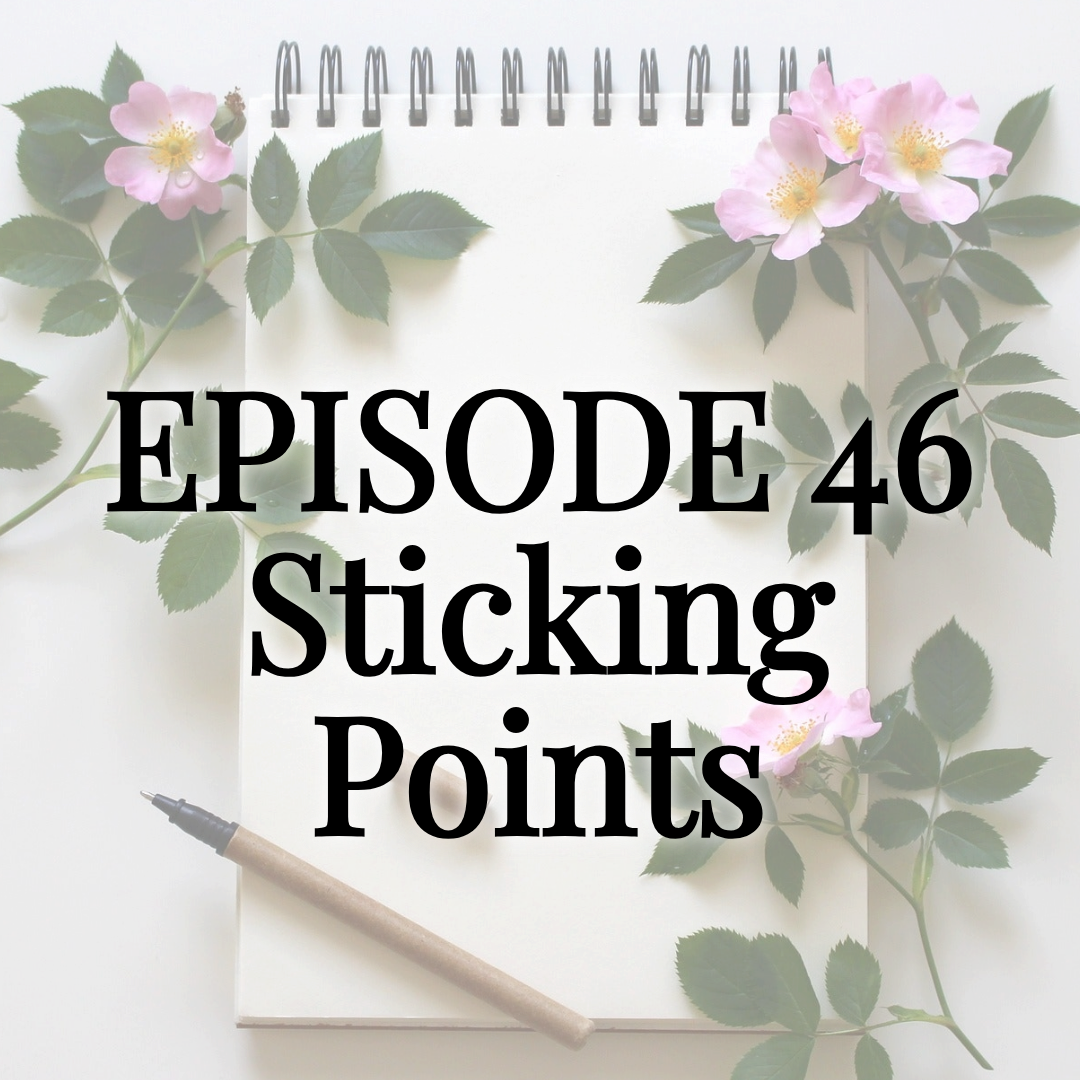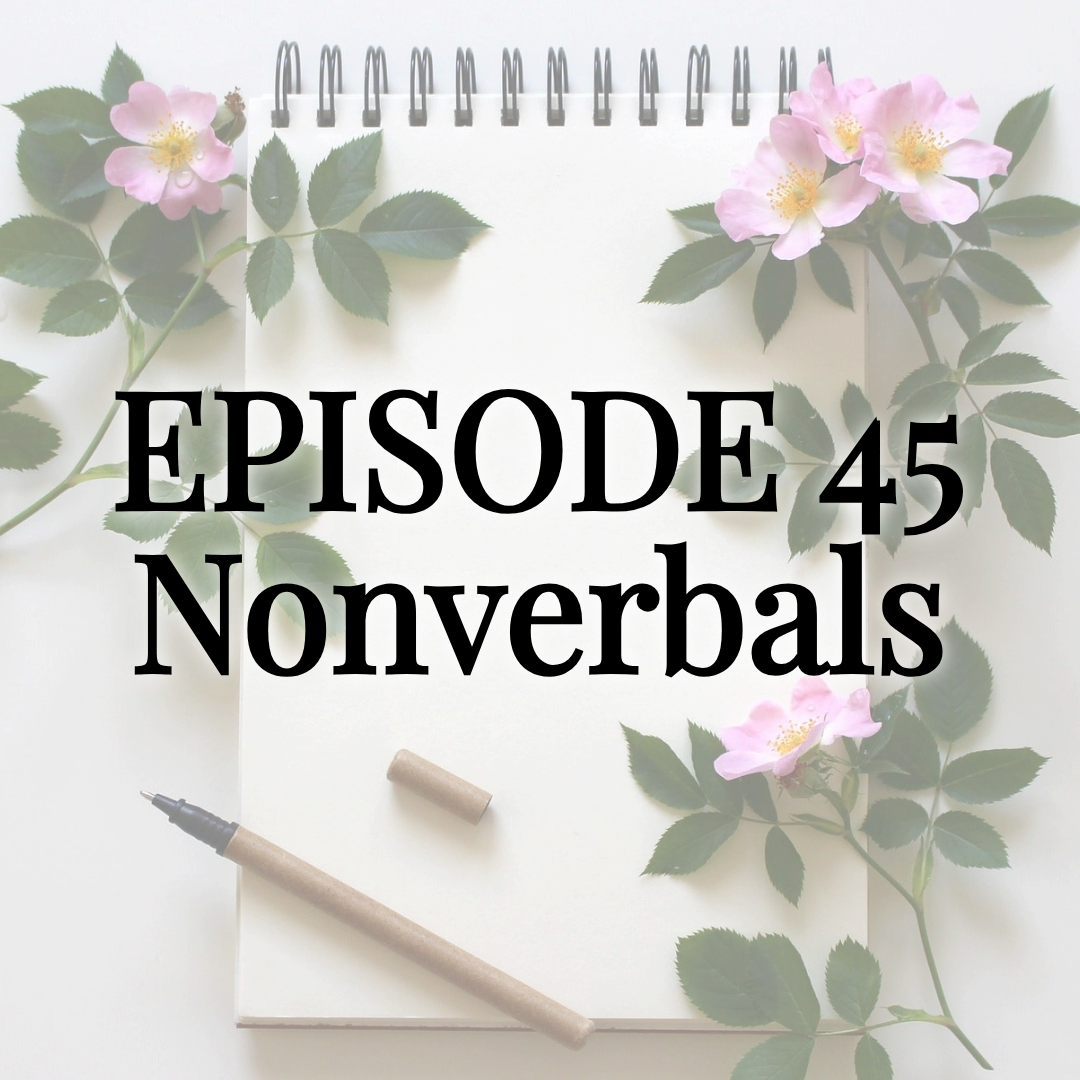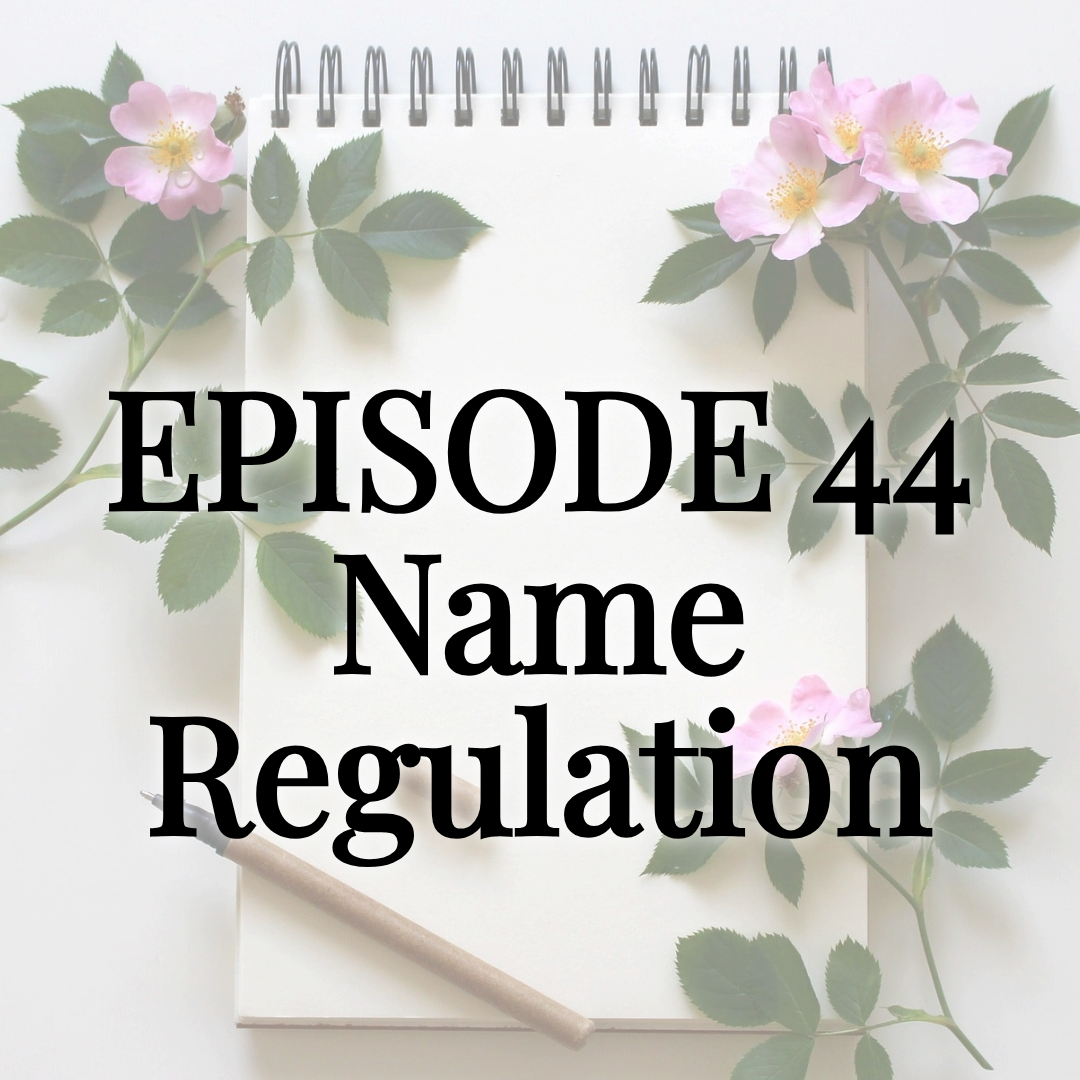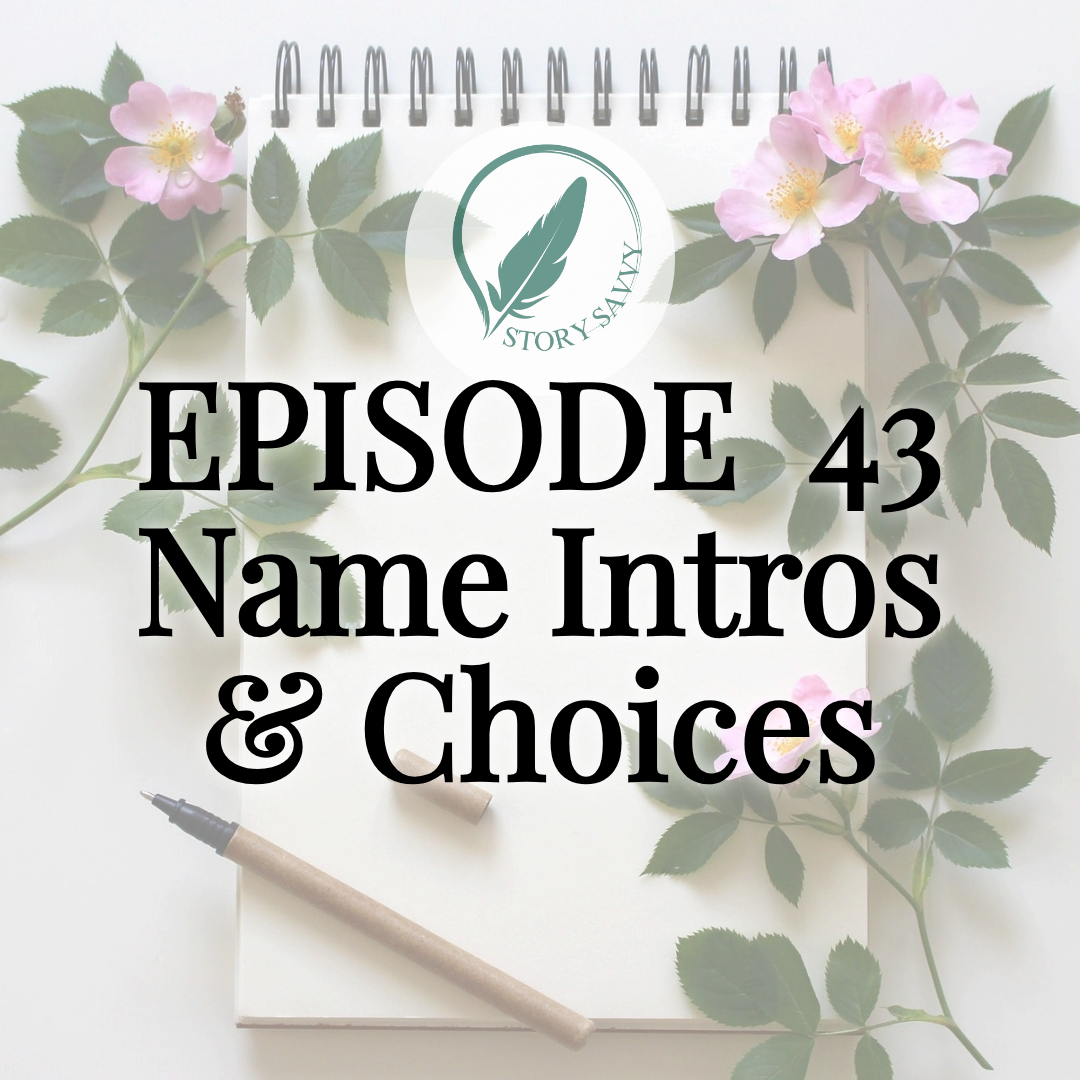Delivering a Great Climax & Payoff: Story Savvy Self-Editing Episode 9
Climax & Payoff: After-episode thoughts, overview, and transcript...

Episode 23: Plot Twists might be a helpful companion topic to this one, as I talk about plot twists in the climax to some extent here but go into much more detail in that installment.
I also talk about closing out plot loops in my answer to the last question, and
Episode 25: Subplots & Plot Threads, as well as
Episode 26: Tying Up Loose Ends go into that topic much more deeply, if you want to check those out.
Happy editing!
Episode 9 Overview:
Delivering a Great Climax & Payoff
"How can I make sure that the global climax and resolution of my book both deliver great catharsis and land the payoff?"
Today, we discuss in depth how to write a great climax, how to structure a novel plot around it, and what are some good storytelling techniques in this ninth episode of the 52-Week Story Savvy series. Host Rebecca Hartwell—founder of Hart Bound Editing [http://hartboundediting.com]—joins aspiring author Agnes Wolfe from Authors’ Alcove [http://authorsalcove.com] to explore how to strengthen your plot and break down the essential elements of a how to build suspense in a story as they discuss how to turn your good story into a great one.
This episode explores how to ensure your climax feels earned, how to nail satisfying your readers at the height of your story, and why the resolution is so vital to catharsis and payoff. Rebecca shares expert insights on avoiding flat climaxes, making emotional moments land, and ensuring your story is deeply satisfying an memorable.
This episode also covers:
- The key elements of good buildup and payoff.
- How to balance internal and external conflict for maximum impact.
- Why protagonists must actively drive the story forward, and bring it to a close.
- How theme, action, and transformation work together to create a meaningful ending.
Whether you’re brainstorming, outlining, or revising, these tips will help you shape a protagonist that feels real, relatable, and unforgettable.
Recommended Resources:
Story Grid – [https://storygrid.com]
Authors’ Alcove Membership Site - [http://authorsalcove.com]
Book Giveaway - [http://authorsalcove.org]
Have questions about character development? Drop them in the comments, and we’ll answer them in future episodes!
See you next week for episode 10: Character Arcs & Protagonist Transformation
Episode 9 Transcript:
Delivering a Great Climax & Payoff
Rebecca Hartwell: Hello and welcome to the Hart Bound Editing Podcast. This is episode 9 of the weekly Story Savvy series, where we tackle the 52 biggest self-editing topics and tips to help you make your good story great. We've covered a bunch of topics in this series so far, including last week's episode on the global crisis of a good story.
Today, we're going to go over the global climax and resolution. By the end of this episode, you will hopefully feel confident identifying the climax of your book and if it is or isn't working, and how you might improve it. Joining me to ask all of the questions that you've wanted to is my friend and co-host, Agnes Wolfe.
Agnes Wolfe: Hi! I am an aspiring fantasy author who hopes to release her middle-grade fantasy later this year and also the host and founder of Authors' Alcove. I'm here today to tackle the biggest event of a story and how it can deliver the best payoff. So, before we dive in, are there definitions of the climax and resolution to know beyond what I generally think they are?
Rebecca: I think they're pretty obvious, but I will take a whack at it anyway. The climax is the biggest event or action of the whole book where everything comes together and the entire story is either lost or won. The resolution is the end of the story, after the climax, where things are wrapped up and metabolized, both for the reader and for the characters in the story. It's also likely that the climax is the core event of your story, like we went over in episode 4, but that doesn't have to be the case.
Agnes: Should the way a reader feels about the pivotal conflict be different depending on the genre?
Rebecca: Yes! So glad you brought this up. We already touched on this a bit in the genre episodes, but each genre has its own emotional promise, and the climax is where you deliver that.
So, in romance, the emotion of the pivotal conflict or the climax should be love and/or that chest-aching feeling of possibly losing it or never finding it.
In action, like many epic fantasies, the payoff is adrenaline and grand triumph. That’s the emotional payoff of action.
Just to give more examples: In thriller and crime, the payoff is justice. In maturation plots, it’s clarity and personal growth. In performance plots, it’s that rush of competition and the literal win-or-loss payoff.
So, every genre has its own emotional note to hit as loud, and clear, and precisely as you can in the climax. Which is a big part of why we went over nailing down your genre early on in this series because it plays a role in so many different things, especially including this.
Hopefully, listeners will be able to translate my advice through this episode and series into whatever they have determined, through the research I recommended, their core emotional moment and promise is.
Agnes: So, what is the biggest mistake writers tend to make when they're creating that pivotal scene?
Rebecca: So, I did jot down a list of these because there are a few.
The number one mistake is robbing the protagonist of their primary agency. And this can include the issue of Deus Ex Machina, which, if you aren't familiar with that, it means the god in the machine. And it’s this story issue (it’s only an issue now, it was totally in fashion in ancient Greece) but it’s this idea where the characters build up these big problems, these BIG problems, and then some god-like power comes down and just fixes everything for them.
It takes away the need to be the one fixing it away from the protagonist, whether that's to a secondary character, fate, or luck, or a deity, or an overpowered character. Anything like that. So, the number one issue is taking the agency of owning the climax away from the protagonist.
Issue number two is having a climax that isn't the direct result of the book building up to that point. I've edited a book or two where the whole book was just building up—it had a really strong goal, and motivation, and momentum, and it was on this clear path—and then the climax had nothing to do with any of that. And that’s not going to pay off, because the payoff comes from the buildup. If the buildup and payoff aren’t connected, it’s not going to work.
Issue number three is a climax having anything in it that needs to be explained in depth to make sense in the midst of that action. This is a relatively minor pacing issue, but it's still worth noting.
So, if you're going to have to have, you know, a certain weapon, a certain mode of transport, or a certain spell used in the climax, explaining that to the reader and making sure that it’s set up well needs to happen before you get to the climax. It needs to happen in that middle build. If you're taking a moment in the climax to go, “Hey, this is how airships work,” that’s not ideal and you're taking away from the adrenaline, the fast-paced nature of a climax, to drop all of that momentum off and explain these details.
So related to that, but on a bigger scale, point number four is it’s an issue if there's a whole scene in the midst of your climax where the pacing completely drops away. Which, to be fair and transparent, I am guilty of in my own books. If I ever go back and edit my first series, that is one of the biggest things I will fix. And the issue here is that you want to have one climax.
You can do it better. Like I've mentioned in previous episodes, I’m not coaching bestsellers. I’m coaching people who are new to this and who are trying to figure it all out. In which case, learning to follow the rules before you learn how to break them absolutely stands. So, you only typically want one climax. And if you have what feels like a climax—because you're not going to be able to tell the readers, “Hey, this is what I’m calling the climax.” They’re not going to know that. It’s all about how it feel—so if you have what feels like one climax, and then the protagonist has a whole scene, or two, or five, where they have to go recover, and heal, and prepare for round two, and then you have a second climax, that’s not going to pay off. Because it doesn't have the right massive arc of just “this is the thing.” So that was point number four.
Point number five is: the last and most common issue I see in climaxes is that the protagonist hasn’t earned it. This kind of connects to last week's topic of the crisis. Of; they haven’t had a change moment. They haven’t had something that they really put in effort for or paid a price for that allows them to earn winning the climax.
So, in romance, this is almost always going to be a matter of overcoming the internal fatal flaw, which pushed the lovers apart in the midpoint breakup. But in general action plots, that can be a little harder to understand subconsciously. And including most of fantasy, it could be a wide range of different things. But there has to be some sense of earning it.
A few examples might be:
- The protagonist has a realization about who their real friends are.
- Or they have a shift in their goal, from being a selfish goal to being a selfless goal.
- Or the acquisition of a magical item that they had to prove themselves worthy of, like Excalibur.
- Or perhaps they simply needed to go through the trials and tribulations of learning how to use a new magical power.
There has to be some kind of earning the climax. But if you're in a genre that has multiple options for what that might be, feel free to play with any of them. You just need to hit the requirement of “it’s been earned.”
So the last point I want to make on this is that if it’s embedded in the whole story, if, again, it’s part of that buildup that’s going to eventually pay off, it is going to work so much better than if it comes as this one little moment of, “Oh, I found the right sword,” right before the climax.
The more you can embed that change, from a starting point to their crisis, to them earning whatever they need to have to triumph in the climax (or get the lover back, or whatever), the more you can embed that the better.
Agnes: So, I can definitely see why you chose to do the protagonist's pivotal choice before you did the climax because, in order for it to pay off, we have to know what the choice is. And she has to or he has to have made that choice.
So how do we—so I know in my own books, my next couple, I'm going to show some character growth in some of my more minor characters. And we've kind of talked about this a little bit in the last episode. But how do we know if our protagonist is being overshadowed by other characters?
Rebecca: I can give you an exercise here to look at in your own work to figure out the answer to that question.
So, to start out, make a list of the one to seven biggest moments, and precise, exact moments, that make the climax go the way it does. And these can be action or revelation. So, if those tiny moments happened in a different way, the climax would have a different ending, or it would be a very different shape. And you want to narrow in on where those moments are.
So, once you have that list, ask yourself a couple of questions and write down the answer next to those listed moments. The first is: who does these actions? Who is actually the person doing them? Or, if it's a revelation, who learns the revelation? So, if the point is that the protagonist needs this information, then they have to be the receiver. If the point of the revelation is that the whole world learns about it, then they have to be the person who broadcasts that.
So, once you have the moments and then the character name that owns each of those moments, make sure that your answers are honest. And it's not a, you know, chain of cause-and-effect answer. Only the hands-on, singular avatar who actually does that pivotal moment. So, your protagonist—and this is how you answer the question that you asked—your protagonist should own all or most of those pivotal moments. It should be their name down this entire list. But you have to be honest. You can't just put their name there because you think it's supposed to be there.
If you're writing dual POV, which is very common in the fantasy romance space that I do most of my work in, it is totally fine to have a mix of both protagonists' names in this list. But be aware that the stronger of the two, story-wise, which is often the female main character—again, in my niche—has slightly more. Because whoever has the most agency in the climax is going to be remembered by the reader as the primary protagonist from any given book.
So, if you're writing multi-POV fantasy, which I know that you are, just make sure that your protagonist owns, you know, so… Multi-POV can mean different things. So, if you have, let's say, multiple protagonists that you really want to have as more or less equals, and it's more than two, make sure that one of your protagonists, and not secondary characters, own all of those moments. And again, understand that whoever owns the most is going to be remembered as THE protagonist over the other options.
And just as a point of interest, this is the primary reason behind the fan argument (that I personally love) that Samwise Gamgee is actually the protagonist of Lord of the Rings and not Frodo. Because when it comes to throwing the ring in the volcano, he’s the one who actually does it.
Agnes: I think that's a dangerous thing for us newbies to be doing.
Rebecca: Yes.
Agnes: That is a very valid point. As you were talking, though, I was brainstorming about one of my later books. And it kind of gave me a moment where I'm like, “Oh, I know what's going to happen!” You know, because I haven't fleshed out my last book in the series. And while you were talking, I'm like, “Hmm, I now know how this is going to happen.” But yes, I do like that Lord of the Rings theory there. So how can we tell—switching back to the questions—how can we tell if there was enough character growth in our character from before the pivotal conflict and after?
Rebecca: So first of all, we'll go into this in-depth next week, specifically on this topic.
But in the context of the climax and resolution, if you took your character as they exist in chapter one, and picked them up, skipping all of the middle bits, and dropped them into the climax, would they still be able to win? Yes or no? So, would they tackle the climax in the same way? If the answer is “Oh, gods no!” then you're all set. You have character change. They have grown, they have learned new skills, whatever is needed there. If dropping chapter one them into the climax would just snuff them out, then you don't have to worry about this any further. If the answer is “Yes, or probably they'd be fine,” then you either have an issue with the climax not testing them enough—so, not doing enough to force your protagonist to prove that they have changed—or the character not having enough change. And you have to make that call or get outside feedback on it.
Agnes: So how do I know if my climax is big enough?
Rebecca: Tricky question. And this is going to be heavily dependent on your genre.
You need to know how big is expected in your genre, and your subgenre, and your subgenre's niche, and all of those layers. But like we talked about with the global crisis, the biggest test of strength for the global climax is: how much does it matter?
If you are writing romance, how pivotal to the lives of those two lovers is them getting back together for good? Are they going to have a pretty similar life? Are they going to find someone else? Or are they going to be heartbroken and devastated for the rest of their existence?
In action, how much is at stake for the protagonist? That person? Their world? Or the groups of people that they are responsible for or affecting in the general scheme of things?
It's okay to have small stakes, just to be clear, if that's the kind of story that you're writing, like a lot of literary fiction is. But they still have to matter a lot to the protagonist. And I think that talking about the small stakes can help illuminate what that can look like at a bigger scale.
So, for example, winning a spelling bee, in the grand scheme of a world with war and starvation and all these things, is incredibly low stakes. But if the protagonist is a child whose whole life revolves around really harsh, demanding parents who push them to the extremes, only care about grades, and are constantly hounding them to succeed, and this one spelling bee is the singular event that will get that child the grade they need to get into their dream school, which is then the first step into their dream life and their parents’ love and approval, then it matters enough to that person and that story that you’re telling, and is definitely big enough for a climax.
So, the same event, a spelling bee, can mean nothing to someone who’s into sports and has parents who are like, “Yeah, whatever you want to do.” But it can be everything to a different character. And so you have to make that call for your story and your protagonist; whether or not it’s big enough for them and that story.
So, the other way to look at this topic, just kind of from the other side of things, is the same question you need to ask with a global crisis, only with a longer timescale. So, if the protagonist loses or wins in the climax, how different are the two outcomes? If their life and the world are going to be pretty much exactly the same going forward, then whether or not they win or lose doesn’t really matter, and you need to beef that up. You need to add to the stakes and how different those two outcomes more different. If losing the climax would be a much worse path forward than winning in the climax, you’re doing fine. You don’t need to worry about this further.
Agnes: So how do we know if we have given enough clues throughout our novel, so it doesn’t seem like the climax comes out of nowhere? And can we give too many clues?
Rebecca: This is really tricky. And I feel like I need to open with a bit of a caveat, which is: Almost all of the first-time authors that I edit for use a withholding of information to try to get the reader invested in finding those answers. And it doesn’t work that way that well, unless you’ve really figured out how. And I am absolutely guilty of this in my first novel. That was one of the most valuable pieces of feedback I got. So, when you’re talking about clues, I think that implies a sense of wanting to withhold information from the reader. And I recommend against that.
I recommend providing details about what’s coming in the future so that readers can be anxious about how it will turn out. So rather than withholding information about what the climax is going to be, give them that information. Tell them, “Oh, it’s going to be a dancing contest,” so that they, through the protagonist, can just be invested through that sense of: “Are they going to win or not? What’s at stake? Are they going to get their parents’ admiration? Are they going to lose their crush?” Whatever’s at stake there.
So that’s the caveat. I generally recommend against withholding information unless you’re actually writing mysteries, whodunits, and that kind of stuff.
So, to actually answer your question of: how do you leave clues? What’s too little? What’s too many? First of all, this can be very hard to tell on our own. This is absolutely something to prioritize when getting outside feedback, whether that’s from editors, critique partners, beta readers, or whatever you happen to have access to.
Basically, the whole story should be inevitably building up to the climax, like we talked about earlier of: the buildup is the payoff. The two have to be intrinsically connected for it to really, really work. But there should be a surprising twist to it. That is absolutely part of the payoff. And I want to make it clear that I’m not recommending away from that. There should be—what’s the term that Story Grid uses? It’s something like “surprising but inevitable conclusion.”
So, for example, in a murder mystery, where clues and mystery are the name of the genre, the climax is definitely going to be the reveal of the murderer. If it’s not, it’s not a murder mystery. It’s not Agatha Christie. It’s not Poirot. It’s not whatever it is you’re trying to create or emulate. But who that murderer is should absolutely be a twist. If by chapter three you’re like, “Oh, well, I watched Sam do the murder, it’s going to be Sam,” then you’re not even going to read the rest of the book. So, the surprising part is who, but the inevitable part is the reveal.
And you can hopefully abstract that onto just about any genre. The thing with that twist is, you want it to be understandable, if not obvious, in retrospect. So, once it’s been revealed, you need to allow the reader to look back at the rest of the book and go, “Oh, yes, I see how that was all being built up.” And I’ve heard of—thankfully not personally read—mysteries or thrillers where the murderer had zero clues pointing to them. And there was no way to look back and go, “Oh, I see how the detective put this together.” And those books aren’t good for that reason.
So, to bring this into a genre that I work on a little bit more, in romance, obviously (if it’s a good romance) the climax the book is building up to is a climax where the lovers come back together better than they were before. More strong in their love and their relationship than they were before. Otherwise, the payoff won’t be there for the happily ever after. But it’s even better than the basic meeting of that requirement if there is interesting or unexpected aspect to that then there otherwise could be if you’re just hitting the beats.
So, to check your own work, I suggest working backwards from your climax. And remembering two pieces of advice. The first being “show, don’t tell,” (it applies here), and remembering the rule of three as well. And if you’re not familiar with that, it’s just this idea that in (particularly western) storytelling tradition, everything comes in threes. There’s the three little Piggies, and the three bears that Goldilocks runs into. Lots of story structure is based around threes.
So, when you’re looking at your own work, what is the inevitable part of your climax? And you do have at least three memorable and important moments in the buildup to it where you clearly point to that climax looming out in the future?
Then looking at the other aspect of that, what is the surprising twist of your climax if you have one? If you don’t and you want one, just brainstorm that, see what might fit. And then taking that and working backwards, where are at least three major clues that you’ve left leading up to the reveal, which the protagonist can understand once it’s revealed? So, it’s fine if the protagonist doesn’t understand the clues for what they are, leading up. But again, they should be decipherable or fit together like puzzle pieces once the reveal happens and the protagonist (and the reader) are fitting all of those things together.
So, unless you are writing actual murder mysteries, like I said earlier, I recommend you lean towards less subtle because, you know. I try to not make this point as often as I’m tempted to, but average is average, and half of your readers are going to be below average in intelligence. And they need to be able to pick up on the clues, too. Especially if you’re writing a genre that isn’t market towards people who like the brain teasers, like mysteries are. Especially as a new writer, it’s just hard to get right. So it’s far more likely, like I said earlier, that you’ll hook the reader if you give them the information that they need to feel anxiety or excitement about what’s coming up in the future.
Agnes: So, going off of that, how do we know if their global crisis—going back to what we talked about last week—worked out for them? And does it have to?
Rebecca: Okay, I think I understand the question. Basically, if they win in the climax, however that looks for your story and your genre, then it worked out for them, and you have a prescriptive story. All set there. If they lost in the climax, then it didn’t work out for them, and you have a cautionary story. That’s the equation there.
Now, that win-loss should be clear in the heat of the climax. Right at that most pivotal, pinnacle moment of the climax of the story. But using the fallout to really show whether they won or lost is also what that resolution is vitally for; showing the more internal or widely affecting win-loss of the climax.
Agnes: So, does it have to be totally one or the other, win or loss? Because I kind of feel like with mine, there’s a big win, but there’s also a loss.
Rebecca: That’s actually ideal, and I’m really glad you brought this up. Part of the resolution is to show if there’s a mix.
There does need to be at least a small moment of very clear, very black-and-white, win or loss in that pinnacle moment. But adding in some complications, some mix of win and loss in the later part of the climax and the resolution, is absolutely a great idea. I meant to bring that up earlier. I'm glad you did.
So, in general genre fiction, um, the reader subconsciously knows whether it's prescriptive or cautionary based on that win-loss. But having a mix is going to help with your catharsis specifically. Because nothing in real life is very often black and white, win or loss, good or bad.
I often describe that ideal balance as either a win with a noticeable cost (so the cost would be the downside and loss to offset that), or a loss with a noticeable silver lining (which would then be the positive).
If you want to go deep into this aspect of payoff and catharsis, then it can be extra satisfying to make sure that the protagonist—again, building up through the whole book—has one biggest want and one biggest need, and the two things are mostly or entirely separate. So that in the climax and resolution, you can win one of them and lose the other, and get that balance by doing that.
Agnes: So, I know we need to wrap up, but I did want to ask one last question. After the pivotal conflict, how do we know the resolution of that is satisfying to our readers?
Rebecca: Having a bittersweet mix, like we were just talking about, is a great starting point.
However, showing how those events, those big, big, big events of the climax, are metabolized or will be metabolized over time by the protagonist and/or their world (whether that's just their internal self, their family, their country, whatever it is) is so, so, so vital to the resolution.
That is what the resolution is for, is showing that metabolization.
Some other important considerations are: do you wrap up all of the open plot loops you intended to? If you intend to leave a couple open, that's fine, but make sure you're not totally forgetting about any of them. Do you bring the adrenaline of that climax back down? And there should be adrenaline no matter what your stakes are. Do you bring that adrenaline back down so that the reader can properly ingest the catharsis that you delivered to them? Do you show more layers of how the protagonist’s global crisis (which we talked about in last week's episode) and the climax action that they took later on were overall the right choices or the wrong choice? Which we touched on in the answer to your last question. And then lastly, basically, just: if your resolution is serving those purposes that I just listed succinctly—so, basically not with a bunch of fluff making it, you know, drag on—then your resolution is solid, and you're good.
Agnes: Well, thank you so much for answering all my questions. I really do appreciate just this opportunity to ask you. I really appreciate it.
Rebecca: You are quite welcome. Next week, like I mentioned in last week’s episode, we will get into the core character change arc that backs up these major moments in more depth. We’ll really get into what that needs to look like, and how to brainstorm ideas, and fix issues.
For now, I would really like to thank everyone who has followed along with us in this series. You can help us out by liking and subscribing to The Hart Bound Editing Podcast and the Author’s Alcove podcast where you can find lots more content for fantasy authors and readers beyond this joint series.
Agnes: I can’t wait to chat with you next week. See you then.
Rebecca: Thank you so much for listening to the Hart Bound Editing Podcast. I look forward to bringing you more content to help you make your good story great so it can change lives and change your world. Follow along to hear more or visit my website, linked in the description, to learn how I can help you and your story to flourish.
See you next time!
